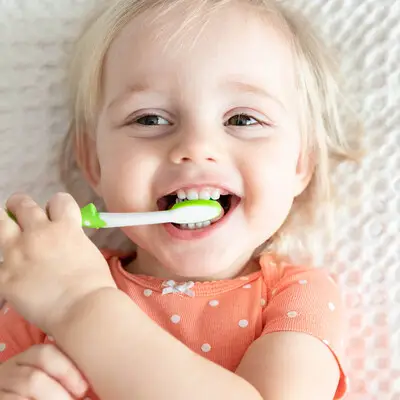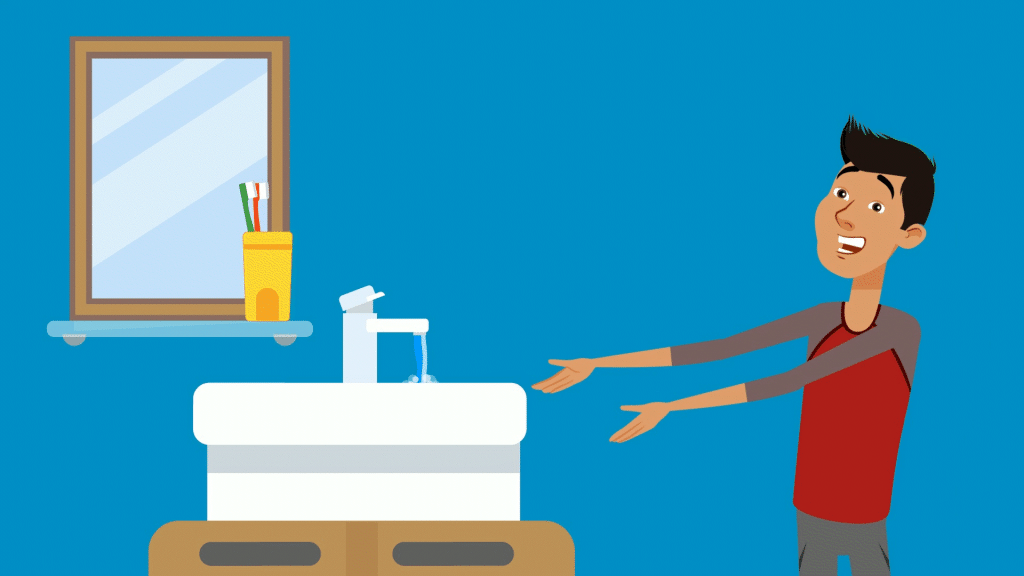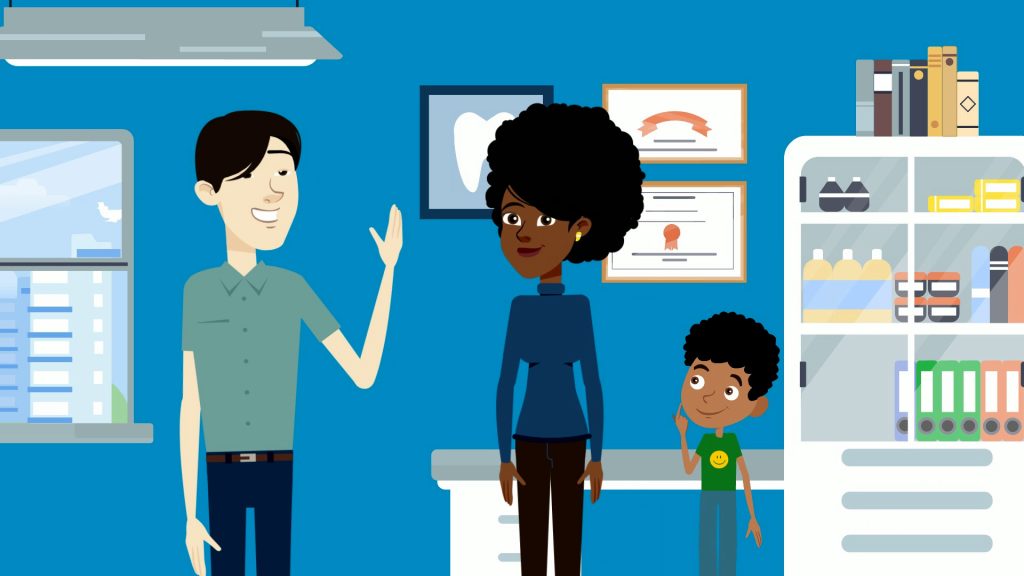
Children should have their first dental visit by their first birthday or when their first tooth appears. Regular six-month checkups help prevent dental issues and reduce anxiety about the dentist.
Every year, during the month of February, we celebrate National Children’s Dental Health Month. This designation was given to raise awareness of the need for great dental health in our nation’s children. Because most dental diseases are preventable, having access to education and resources goes a long way in keeping children’s mouths healthy.
Unfortunately, many people still assume children’s teeth do not matter because “they will just fall out.”
In 1950, President Harry Truman declared February 6 to be Children’s Dental Health Day. He famously stated, “The health of our children is of supreme importance to the future of the nation.”
The day declared by Truman was expanded to a week in 1955, and then to the entire month of February in 1980. During this month, health professionals work to raise awareness of important children’s dental health problems, the need for preventive dentistry, and tips for maintaining dental health at home.
Many dentists will help educate by participating in school programs to teach children in their communities about how they can build long lasting habits for great dental health. The American Dental Association also publishes posters and activity sheets for parents, teachers and dentists to use when communicating with children about the importance of their oral health.
A child’s dental health greatly impacts his or her overall health. Tooth problems, like cavities and other bacterial infections can affect the child’s confidence, attendance and success in school, and toothaches may cause pain, affecting a child’s ability to chew, thus making it difficult to obtain the proper nutrition.
Specific to children, an emphasis on good dental health is important for several reasons.
The most important difference involves an anatomical distinction between primary (baby) teeth and permanent (adult) teeth. Enamel is the hardest substance in the human body, and it acts as the tooth’s insulator and protector against the chemical and mechanical forces of the human diet. Because permanent teeth are made to function for the bulk of our lives, the enamel layer on permanent teeth is much thicker than the enamel on baby teeth. Due to the thinner enamel on baby teeth, once decay starts, it is able to rapidly progress inward toward the hollow nerve chamber inside the tooth. Put simply, cavities grow much more quickly in baby teeth. When children miss seeing the dentist on a preventive basis, parents can be unaware of decay in their children’s teeth until visible black holes are formed.
According to the Centers for Disease Control, about one in five children between ages five and eleven years old have at least one untreated cavity. That number drops to one in seven as children mature to between the ages of twelve and nineteen, likely due to the new presence of mostly adult teeth.
Another encouraging statistic is one showing that over eighty percent of dental sealants placed in permanent molars are successfully preventing decay on these teeth. This is an important preventive tool because nine out of ten cavities occur on permanent molars.

Just as it is our responsibility to train children in the importance of education, personal hygiene, and rules for their safety, it is also our responsibility to ensure they understand the ways to achieve great dental health. Here are the important things they need to know.
Make Good Nutrition Choices
Children will often choose sweets if given the option. Though candy, cookies, and sugary drinks may be fun on occasion, children don’t understand the harm of these foods for their teeth. We have to teach them that sweets can hurt their teeth and that there are other, healthier, snacks available. Foods like fresh veggies, cheese and nuts are teeth-healthy options for those times your child is hungry between meals. Try keeping these snacks stocked in easy-to-reach spaces so your child will reach for them often.
Stay Hydrated
The best drink for your child is always water. Many parents give their children fruit juice or sweetened milk to sip on between meals because they do not understand the cavity-causing power of sugary drinks. Apple juice, grape juice and orange juice are high in sugar and very acidic in pH. When acidic foods or beverages stay on our teeth, it causes our enamel to erode and cavities to form. The best drink is always water!
Brush with the Proper Technique
The purpose of brushing our teeth is to remove dental plaque. Most children are not yet skilled at brushing properly, so a parent or older sibling should help until they are old enough to understand proper technique. Using a soft-bristled toothbrush, gently pull plaque away from the teeth with small circular motions, angling the bristles at a 45-degree angle to the gums.
When you brush with the right technique, touching every surface of every tooth, brushing your full mouth should require about two minutes.
Brush at the Proper Frequency
We should teach children to brush their teeth twice each day at the minimum. The best times to brush are immediately after breakfast, and just before bedtime. Remember, you want to start both your day and your night with fresh breath and a plaque-free smile!
Keep Consistent Dental Visits
In order for children to understand the importance of their dental health, maintaining consistent visits must be a priority. Not only will this help instill the value of seeing the dentist regularly; it will keep your child’s mouth healthy and lower their dental anxiety. In order to prevent dental disease before it starts, it is important to schedule and keep your child’s dental visits every six months.

You can make a difference in your children’s dental health! During the month of February, make a point to talk with your children about the importance of oral care. You can make it easier with a few of these ideas: